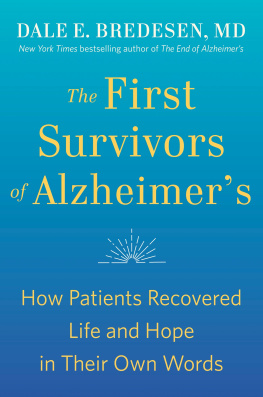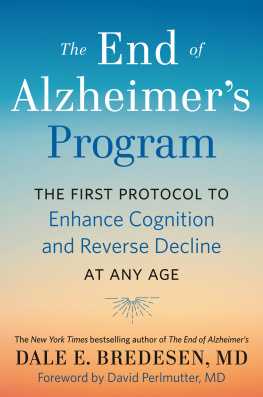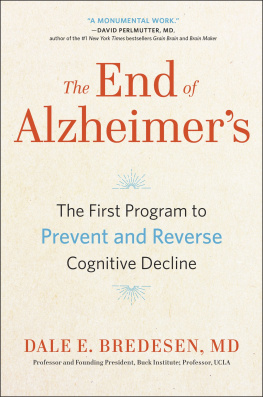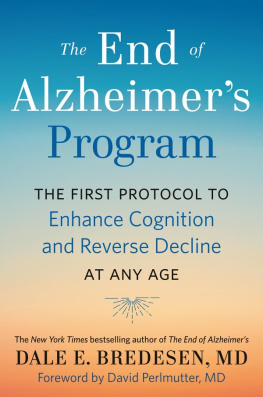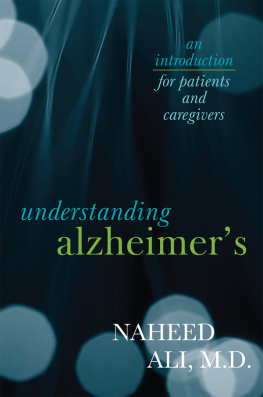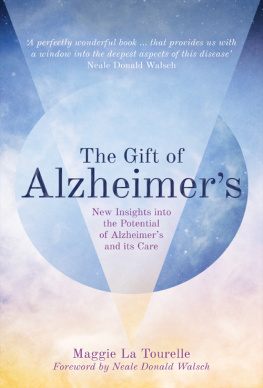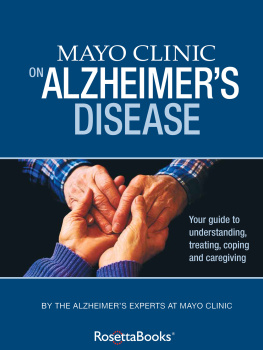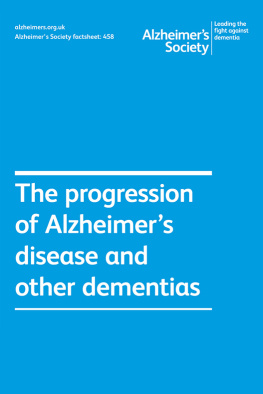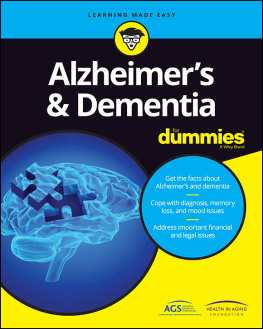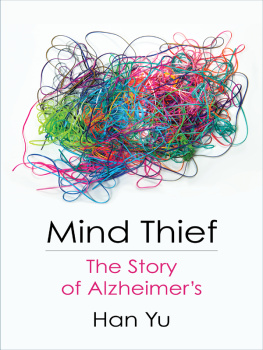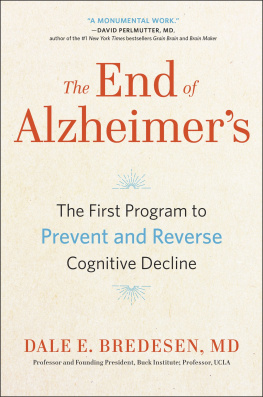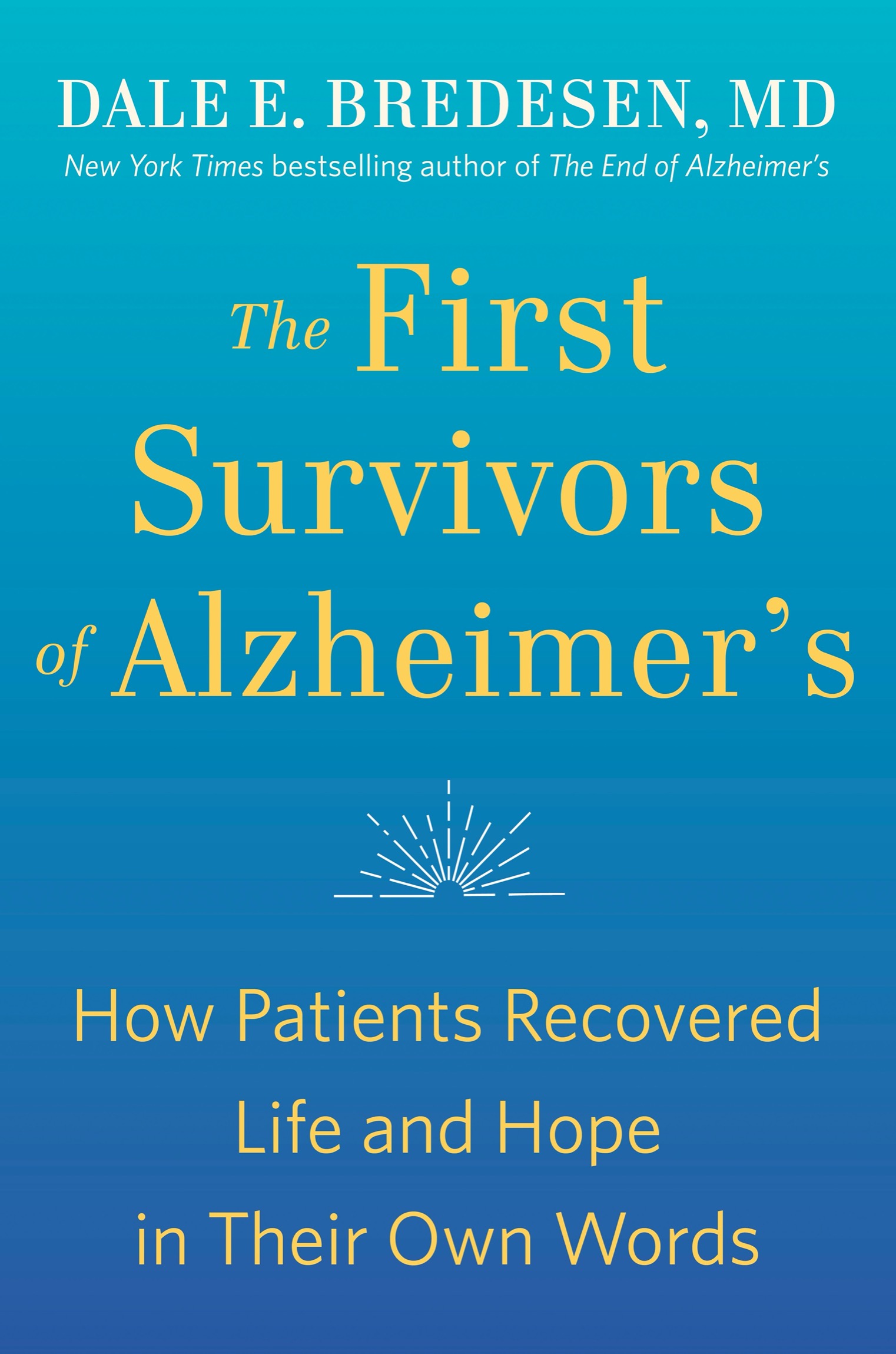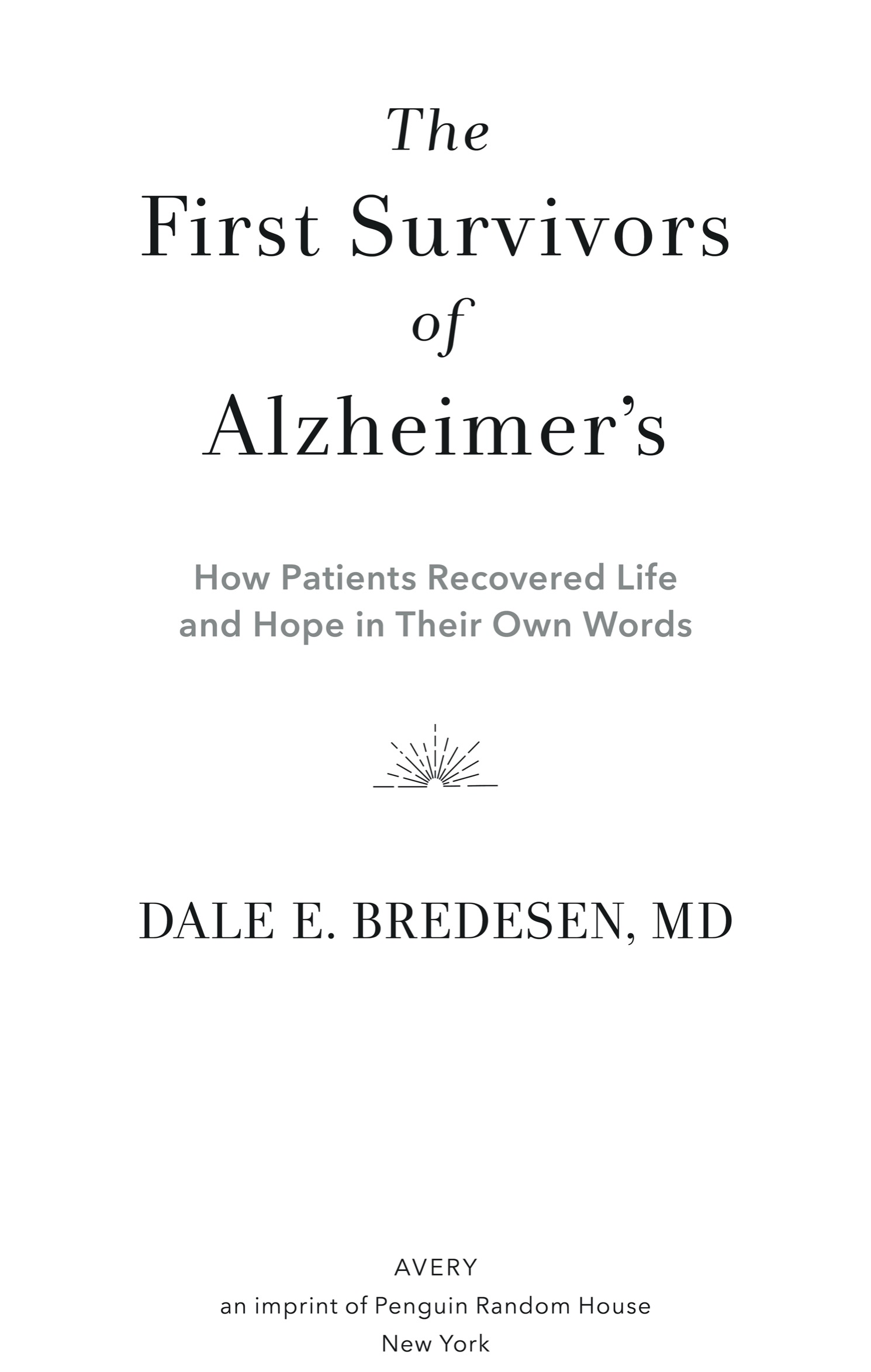Other books by Dale E. Bredesen, MD
The End of Alzheimers
The End of Alzheimers Program

An imprint of Penguin Random House LLC
penguinrandomhouse.com
Copyright 2021 by Dale E. Bredesen
Penguin supports copyright. Copyright fuels creativity, encourages diverse voices, promotes free speech, and creates a vibrant culture. Thank you for buying an authorized edition of this book and for complying with copyright laws by not reproducing, scanning, or distributing any part of it in any form without permission. You are supporting writers and allowing Penguin to continue to publish books for every reader.
Library of Congress Cataloging-in-Publication Data
Names: Bredesen, Dale E., author.
Title: The first survivors of Alzheimers: how patients recovered life and hope in their own words / Dale Bredesen, MD.
Description: New York: Avery, Penguin Random House LLC, [2021] | Includes index.
Identifiers: LCCN 2021010967 (print) | LCCN 2021010968 (ebook) | ISBN 9780593192429 (paperback) | ISBN 9780593192436 (ebook)
Subjects: LCSH: Alzheimers diseasePatientsPersonal narratives.
Classification: LCC RC523.2 .B736 2021 (print) | LCC RC523.2 (ebook) | DDC 616.8/311dc23
LC record available at https://lccn.loc.gov/2021010967
LC ebook record available at https://lccn.loc.gov/2021010968
Cover image: Snipergraphics / Shutterstock
Book design by Laura K. Corless, adapted for ebook by Maggie Hunt
Neither the publisher nor the author is engaged in rendering professional advice or services to the individual reader. The ideas, procedures, and suggestions contained in this book are not intended as a substitute for consulting with your physician. All matters regarding your health require medical supervision. Neither the author nor the publisher shall be liable or responsible for any loss or damage allegedly arising from any information or suggestion in this book.
pid_prh_5.7.1_c0_r0
This book is dedicated to Deborah, Kristin, Julie, Marcy, Sally, Edward, and Frank: your courage, diligence, and open-mindedness have paved the way for millions more survivors like you. Thank you on behalf of all of us.
CONTENTS
INTRODUCTION
Lost in Translation
If you want to go fast, go alone; if you want to go far, go together.
AFRICAN PROVERB
Imagine being told that you have Alzheimers disease. Because this is such a common disease, there is a very good chance that this will happen to someone you love or someone I love. Now imagine that, instead of being told there is no hope, you are told that this is readily treatable, and that you can expect to get your normal cognition back; whats more, your children may be assured that they, their children, and your familys subsequent generations can avoid Alzheimers disease. This reversal of fortune is life-changing, with reverberations through the generations ad infinitum. This was the goal in translating the research that my colleagues and I performed over thirty years into a therapeutic approach.
Do you remember the first time you heard that an untreatable illness had finally become treatable? Down through history, we humans have conquered one disease after another, often through biochemical research, sometimes through anecdotes from tribal medicine, and other times through sheer dumb luck. Regardless of the method, though, the result with each vanquished disease initially feels miraculous: suddenly the death sentences are lifted from thousands or even millions of people, restoring hope and a future for each. These events represent one of the most rewarding aspects of what it means to be human, and they never cease to inspire me:
Najiv was a teenage boy in the 1940s, living in a village in India, when he developed fever and a headache and lapsed into unconsciousness. He was taken by bullock cart from his village to the city, where the doctor diagnosed bacterial meningitis. At the time, this was typically a rapidly fatal illness. On this occasion, however, the doctor told Najivs parents, Until last week there would have been nothing I could do to save your son, but a new drug has just arrived from England. It is called penicillin. Instead of dying, then, Najiv made a full recovery, and this is of more than passing interest to all of us: Najivs son is one of the most gifted biomedical researchers I have ever met, and his research may offer the best hope for an effective antiviral treatment not just for the COVID-19 of the current pandemic but also for any subsequent coronavirus pandemicsa brilliant advance with global lifesaving ramifications.
Whether it is Edward Jenners development of the first vaccineit has been pointed out that Jenner is responsible for saving more lives than any other human in historyor Frederick Banting and Charles Bests discovery of insulin, thus saving millions with diabetes, or David Hos development of triple therapy to treat HIV effectively, each of these pioneers conjured hope from hopelessness, each sent a ripple through the reality we live with day to day, creating endless possibilities that did not hitherto exist, and altering the worlds future irrevocably.
The seven survivors youll read about herein their own wordsare pioneers as well. Youll hear from Kristinthe very first person who adopted our protocol (Patient Zero)who had watched her mother sink into dementia, and then was told by her own physician that she was on her way to suffering the same fate, without hope for treatment. How would each of us feel to receive such news from our physician? Youll also hear from Deborah, who suffered as her beloved father and grandmother were both lost to Alzheimers, and then was horrified as she developed the same symptoms they had manifested, wondering what lay in store for her children. And from Edward, who was told to close his businesses and get his affairs in order. And Marcy, who piled up dozens of parking tickets because she could never remember to feed the parking meters. And Sally, a nurse educator who taught her students that medicine had no effective treatment to offer Alzheimers patients, then developed it herself and failed a drug trial. And Frank, who had plans to write a book chronicling his own descent into dementia. And finally from Julie, who asked an expert neurologist if he could simply help her to avoid further decline and was told, Good luck with that. The thoughts, concerns, emotions, and ultimate triumphs these survivors experienced are described with a depth of feeling that only those who lived them could express.
All of these pioneers are still on the trailthey survived terminal PET scans, MRI scans, family histories, and the prognostications of their physicians, thanks to their own inquisitiveness and industry to find a new solution, their courage to address the underlying drivers of their cognitive decline, and their determination to stick with a novel protocol.
Thanks to these first survivors, the way is now clear for the millions more in need, for both prevention and reversal of cognitive decline. These pioneers are catalyzing a paradigm shift in the way we think about, evaluate, prevent, and treat Alzheimers disease and the pre-Alzheimers conditions, MCI (mild cognitive impairment) and SCI (subjective cognitive impairment).

